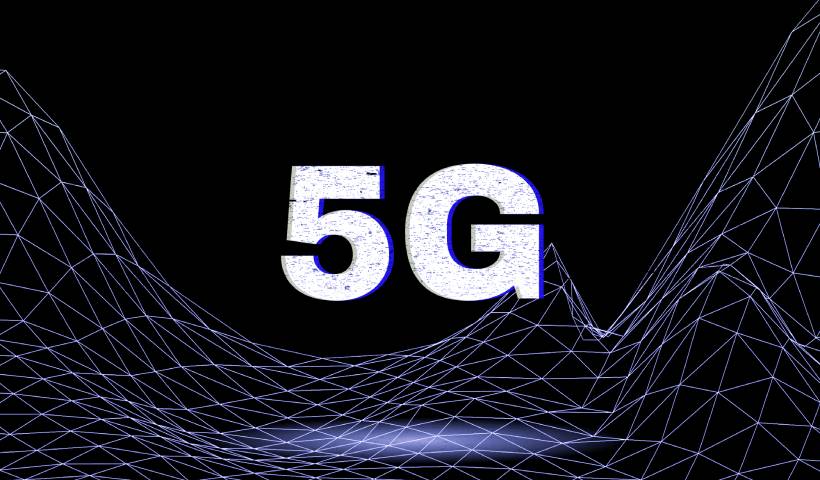After almost a decade, 5G technology is about to become a reality. The fifth generation of mobile technologies hit the market at the end of 2018 to revolutionize our lives, and now it has begun to materialize.
Nowadays, having a stable internet connection is a basic necessity. Not only smartphones or computers require network access. As its name suggests, 5G technology is an evolution of the 4G network that, in addition to guaranteeing greater speed, will revolutionize mobile communication by connecting millions of devices in what is known as IoT – the internet of things. The main characteristic of the IoT is to improve the integration of devices connected to the internet, such as Smart TVs, cars, security services, and even homes or cities.
But what exactly is 5G technology? How is it different from 4G? which are your primary benefits? And what impact could it have on our lives?
What is 5G Technology, and How Is It Different From 4G?
Despite having started with mobile phones, 5G already includes new devices and services within various sectors, from education to entertainment. It is a project that replaces the wireless architecture intending to reduce energy consumption, increasing connection speed, minimizing latency, and reducing maintenance costs.
The fifth generation of wireless networks will be designed to achieve the level of performance that the IoT requires. And this will result in a connected and ubiquitous world.
4G vs. 5G
Wireless technology started with the 1G network, which brought mobility to analog voice services and allowed talking through the first mobile phones. 2G technology introduced the ability to send messages from one device to another, so-called SMS. Later, 3G permitted users to make calls, send messages, and access the internet. And 4G was presented as an optimization of the 3G network, improving the speed of uploading and downloading content.
Now, 5G, in addition to guaranteeing higher speed, has a much shorter latency time. Among the main differences with 4G technology, we find:
- Browsing speed of up to 10 GBps (gigabytes per second), 10 to 100 times better than the 4G network;
- 1-millisecond latency;
- 1000 times faster broadband per unit area;
- More than 100 connected devices per unit area, compared to 4G LTE networks;
- 100% coverage;
- Up to 10 years of battery life in low-power IoT devices.
What Are The Main Benefits of 5G Technology?
possible to connect and control machines, objects, and devices. With new levels of performance and efficiency, 5G offers new user experiences when connecting with new sectors.
The advantages of this network are numerous. In addition to its characteristics, such as performance or latency, 5G can be used in many scenarios. The augmented reality and virtual reality, smart homes, and autonomous vehicles are just examples of sectors in which it will apply. Because in addition to downloading a Netflix movie in a matter of seconds, 5G has many other essential applications. For example, this technology will allow vehicles to communicate with each other or with road signs.
But there are also many business opportunities yet to be explored: in offices, factories, cities, and even in the healthcare sector. The benefits of this technology apply to all sectors of activity.
Among the many advantages of the new mobile network are the following:
Faster Mobile Internet
5G will allow mobile internet connections of 1GB per second. This technology will bring higher speed and higher bandwidth. This will enhance the experience of online services and open doors to new services that can take advantage of this fifth generation of mobile connectivity.
It Will Promote Immersive Technologies.
Virtual reality and augmented reality are already common elements in the digital era. However, they are two of the technologies that will grow the most with the arrival of 5G. This will allow users to enjoy more immersive experiences than ever.
Lower Latency
Latency can be summed up in response time, for example, when opening a web page. That is, it is the sum of time delays within a network. 5G guarantees that latency is always less than five milliseconds, which will make the response time immediate.
What is The Impact of 5G on Companies?
5G can help companies innovate, increase efficiency, design new technological advances, and reduce costs. For a company to take full advantage of this technology, several factors must be taken into account:
- Investment: It is essential to have your team prepared for 5G. This will facilitate adaptation and therefore promote innovation and business growth.
- Process automation and the use of Artificial Intelligence: As 5G reduces latency, there will be changes in the way companies work with mobile communications. In this sense, it is necessary to analyze how tasks can be automated and where AI and Machine Learning can be applied.
- Study its impact: Companies need to understand what 5G is and how this technology helps them achieve their goals.
- 5G strategies: This technology must be explored and the changes it can bring, both in processes and products.
